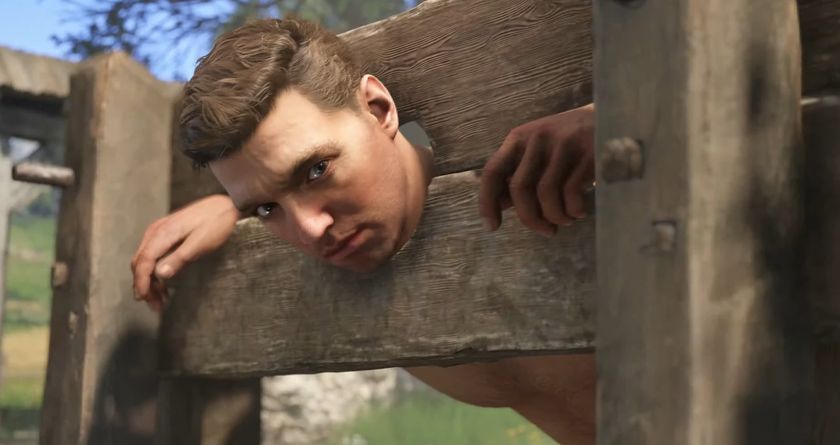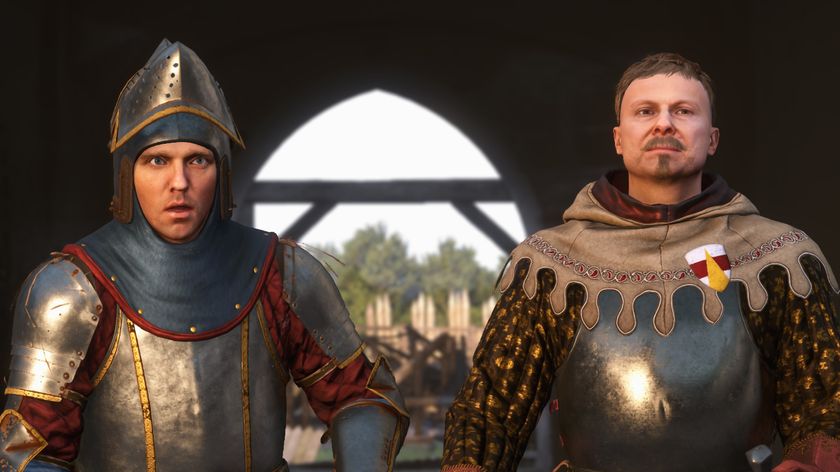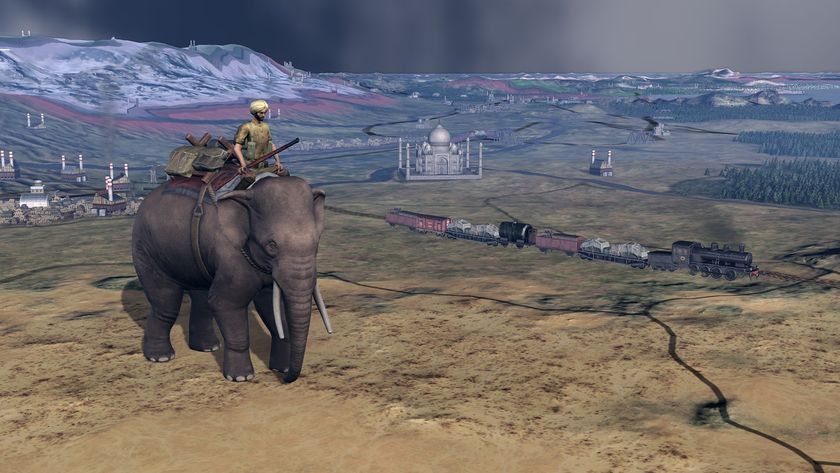How Marvel's Midnight Suns is 'the complete opposite' of XCOM
The card-based combat in the upcoming Firaxis superhero game will defy every expectation XCOM players bring to it.
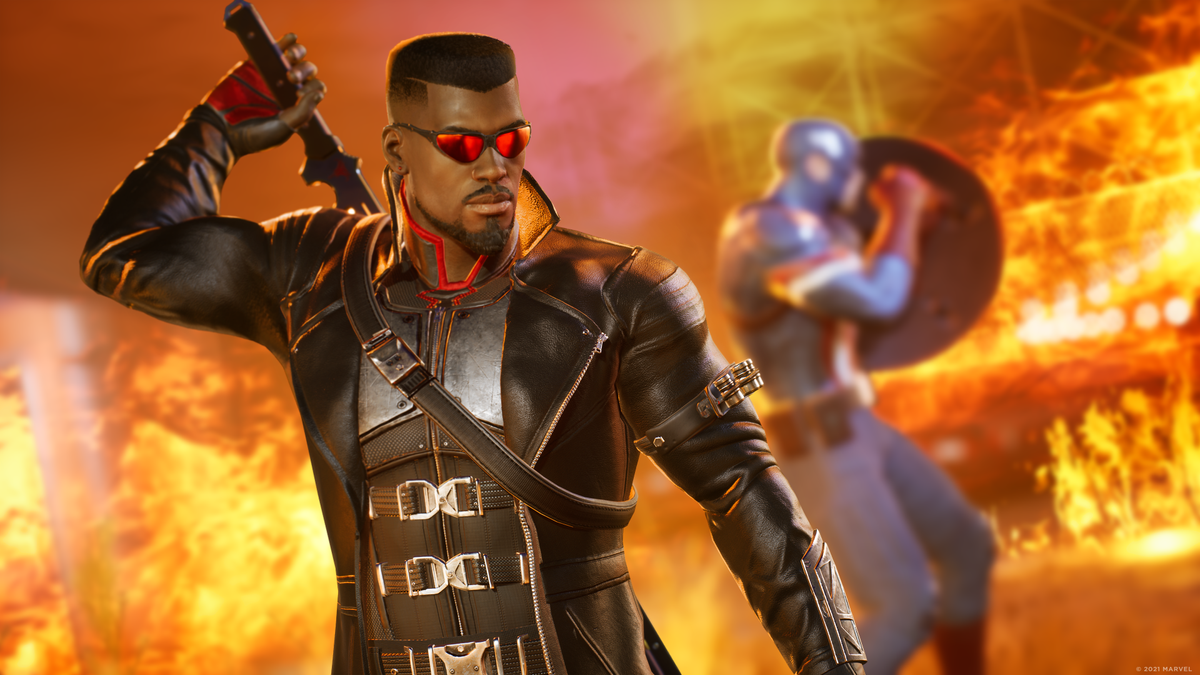
It's kind of preposterous to say that Marvel's Midnight Suns is "the complete opposite" of XCOM 2. They're both turn-based tactics games. And yet, I have a hard time completely disagreeing with that claim from creative director Jake Solomon. They kind of are opposites. At the very least, Midnight Suns is the version of XCOM you'd get if you rewrote all its rules after declaring that it's Opposite Day. (Something I can imagine Solomon doing.)
A couple weeks ago, I spoke to Solomon and played Midnight Suns for a feature appearing in the next issue of PC Gamer magazine (on sale late June 23 in the UK and July 12 in the US). This is an excerpt from that article that I've modified for the web.
Here are a few of the ways that Midnight Suns really is the Bizarro version of XCOM (excuse the DC reference):
- In XCOM, each unit acts independently with their own resources. In Midnight Suns, three heroes all share the same turn and resources.
- In XCOM, deciding who to send charging toward near-certain death to complete an objective is an essential part of the experience. In Midnight Suns, it isn't super important which hero lifts the concrete slab off a bystander, just that it gets done.
- In XCOM, you always know what each soldier can do on a turn (shoot at aliens, mostly), but there's a chance they'll miss. In Midnight Suns, your heroes never miss, but what they can do on a turn is always changing, because their abilities are cards dealt from a shuffled deck.
XCOM concerns such as cover and sightlines mostly don't factor in Midnight Suns. If I play one of Blade's sword attacks, for example, I can pick any target on the field and he'll automatically dash up to them before striking, regardless of how far away he started. As an XCOM player, it was hard to get my head around that. I just had to keep reminding myself that it was Opposite Day.
Although range only sometimes matters in Midnight Suns, directionality often does. Knockback abilities don't do damage unless you knock the enemy backwards into something, for instance. You can only command one hero per turn to move to an arbitrary spot on the map, while the others have to be moved as a consequence of an action they take, such as an attack. My decisions therefore started to resemble those made by pro billiards players, who are not only trying to sink a ball with each shot, but also put the cue ball in an advantageous position for the next one. For example, to effectively use Captain Marvel's Photon Beam, which skewers multiple enemies in a line, I might first have played a card which sent her to punch a goon on the other side of the map so that she'd wind up facing a line of other enemies.
It's an unusual system that could lead to some fun trick shots—you can knock Hydra goons into pits, so it literally becomes like billiards at times—but the spatial complications don't feel essential to Midnight Suns. Whereas the XCOM games are combat simulations that are inextricable from game boards, you could theoretically make a version of Midnight Suns that's purely a card game.

Preach to the spire
Solomon doesn't have to convince me that card games are cool, but not everyone was happy about the idea when Midnight Suns was announced.
The biggest gaming news, reviews and hardware deals
Keep up to date with the most important stories and the best deals, as picked by the PC Gamer team.
"Cards have baggage," he says. "You either picture your grandma playing pinochle, or you picture microtransactions."
Neither pinochle nor premium card packs feature in Midnight Suns. For Solomon, cards are just an "ability delivery system" that's useful for designing the kinds of tactical puzzles he likes. The device happened to be thematically appropriate for a superhero game, too.
"The point of almost every card game is to almost break the game," says Solomon. "You have these moments that are higher than almost any high when it comes to tactics, where you just get this amazing set of cards or circumstances that work together. And then you basically break the game and you're like, 'Oh, yeah, I'm off the deep end here.' That's the fun of having card mechanics, and it fits really well with the idea of superheroes, because you can't have a level one Iron Man. What does that mean? Like, Iron Man's Iron Man, right?"
If you have this insane card, and you get it at the right time, and you can support it with other heroes or other abilities, then man, go crazy.
Jake Solomon
Slay the Spire players will know that 'breaking the game' feeling. The roguelike deckbuilder has inspired a few card games over the past few years, including this one, and is all about playing card effects off each other (and other items) to produce decks that are so godlike they feel like software bugs.
When I played its first few hours, Midnight Suns didn't present me with opportunities to twirl Doctor Strange around in an infinite damage loop. This is a 60-hour RPG, according to Solomon, so it has to pace itself. In the early going, the synergies between my cards and heroes were pretty basic. For instance, some heroes generate lots of Heroism, a resource used to play powerful Heroic cards, while others have lots of Heroic cards in their decks. Pairing them is an obvious choice.
Eventually, though, Solomon wants less obvious combos to emerge: surprising synergies that he and the other designers can't claim credit for.
The anti-XCOM
One way that'll happen is with randomized card mods, which come into play at some point after my demo ended. Solomon says there are systems to ensure that legendary mods, such as one that eliminates the Heroism cost of a Heroic card, aren't handed out over and over. Otherwise, he doesn't plan to step in and "fix" mods that create overpowered decks.
"If you have this insane card, and you get it at the right time, and you can support it with other heroes or other abilities, then man, go crazy," he says. "That's what this whole game is about. Like, destroy that enemy that should take four turns. Wipe him out in one. Who cares? That's what the game is about."
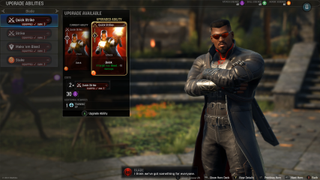
At its heart, Midnight Suns is "the complete opposite" of XCOM because you're not commanding frightened recruits named after your friends and family, a few of whom will almost certainly be murdered by aliens. You're commanding Carol Danvers, who's part alien herself, flies at Mach six, and like certain microorganisms can survive in the vacuum of space. In that scenario, the question isn't 'can I get everyone out alive?' but 'what's the most efficient way to punch the crap out of everyone on the field.' It's something I haven't played before, and that's exciting.
Role-playing
It's also just one part of Midnight Suns. The other side of the game is about hanging out with Marvel heroes such as Spider-Man, Magik, Ghost Rider, Doctor Strange, and Blade. Your crew assembles at The Abbey, a "haunted Transian castle" in a pocket dimension outside of Salem, Massachusetts. Unlike XCOM, which presents your bases as cross-sections viewed at a distance, you'll wander The Abbey and its grounds in third-person as a new Marvel hero named The Hunter.
Solomon says that doing something new has been "equal parts exciting and terrifying."
There's a hellhound to pet, a friendship system (becoming pals with other heroes confers combat bonuses), a "light" and "dark" dialogue system (much closer to "paragon" and "renegade" from Mass Effect than to "light side" and "dark side" from Star Wars, despite the name), an optional mystery side plot, buildings to upgrade, and new velvet curtains to buy for your bedroom. I spent part of my demo having a movie night with Nico Minoru.
I go into the story-heavy RPG side of Midnight Suns in more detail in the next issue of PC Gamer. The dialogue and animation can be a bit rough, but Tony Stark irritating Doctor Strange (who's a little more Vincent Price-like than Benedict Cumberbatch's version) by repeatedly referring to him as "Doctor Spooky" is the sort of straightforward Marvel gag it's easy to enjoy. It's comic book comfort food.
I expect something at least a little messy. Even studios known for prestigious RPGs, such as BioWare, CD Projekt, and Bethesda, are frequently roasted for awkward dialogue and animation, and Firaxis has never attempted a game quite like this before. Solomon says that doing something new has been "equal parts exciting and terrifying."
Turn-based combat is something Solomon and Firaxis do know, though, and it shows in the quality of the attack animations and the fun I had even during the tutorial missions, and without digging deep into deckbuilding. To some degree, the challenge is choosing actions that allow your superheroes to be as super as they ought to be: Spider-Man and Captain Marvel should not have trouble clearing a street full of Hydra recruits, and if you line up each shot while thinking about your next shot, they won't.
After a little delay, Marvel's Midnight Suns has a new release date: It's coming out this year on October 7, and the PC version will release on Steam and the Epic Games Store.

Tyler grew up in Silicon Valley during the '80s and '90s, playing games like Zork and Arkanoid on early PCs. He was later captivated by Myst, SimCity, Civilization, Command & Conquer, all the shooters they call "boomer shooters" now, and PS1 classic Bushido Blade (that's right: he had Bleem!). Tyler joined PC Gamer in 2011, and today he's focused on the site's news coverage. His hobbies include amateur boxing and adding to his 1,200-plus hours in Rocket League.
Most Popular






